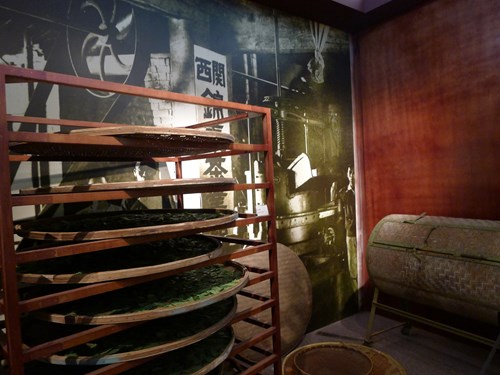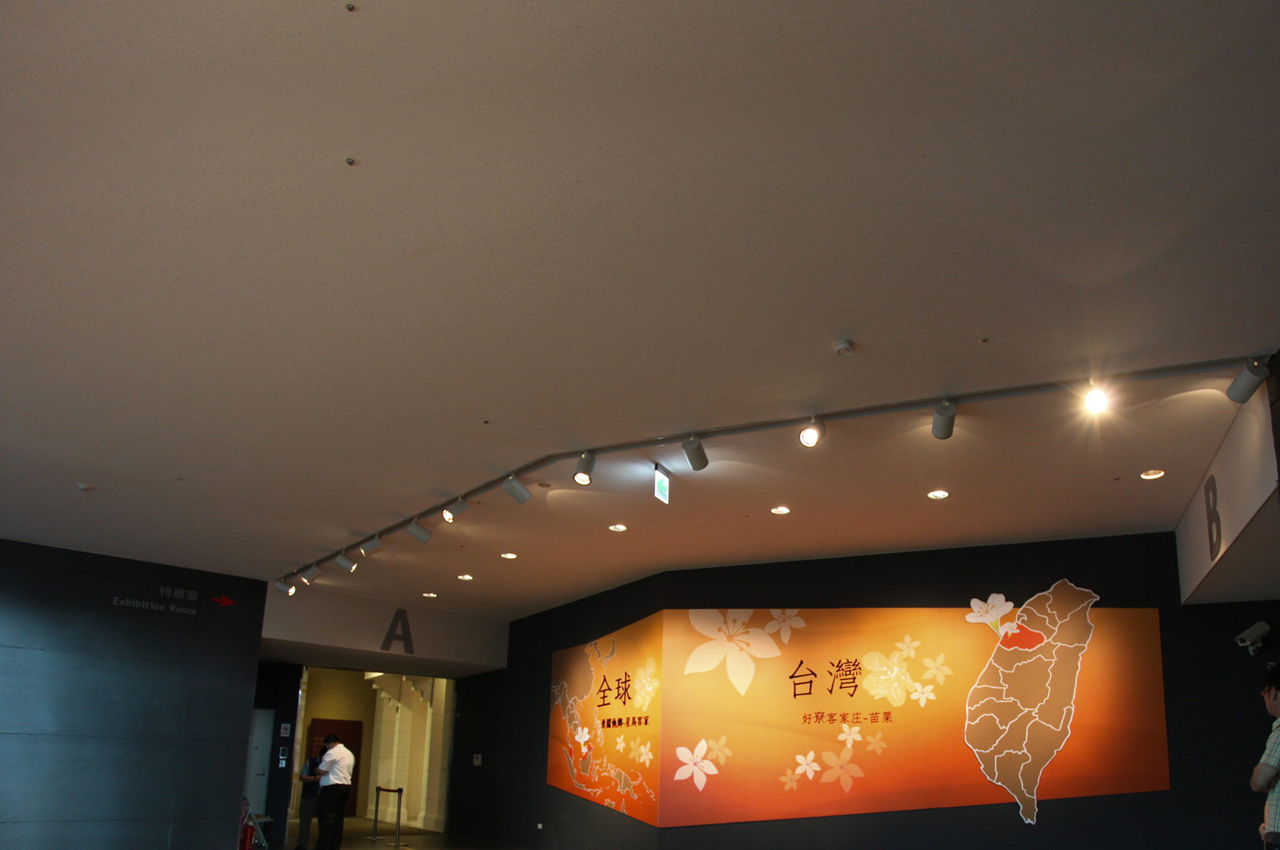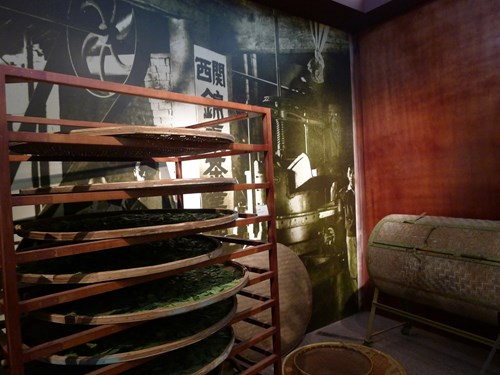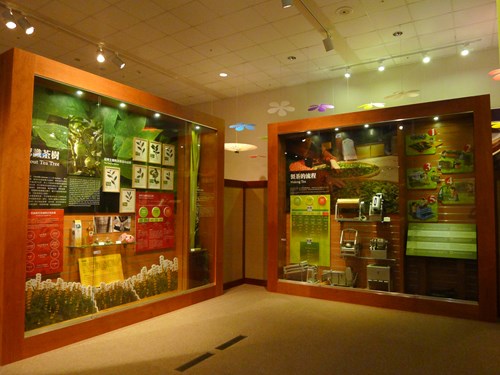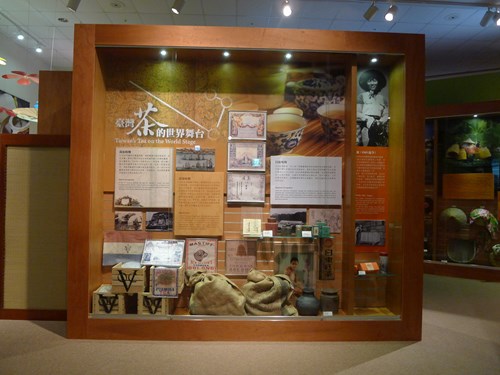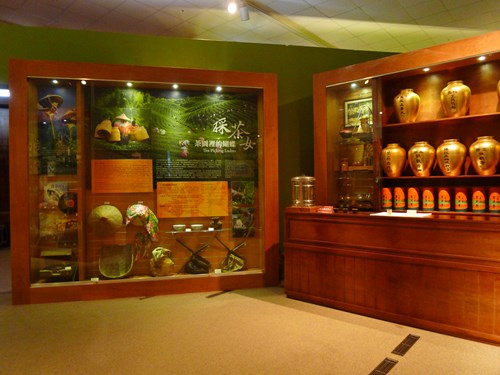Exhibition Review
Cultural and Creative Industry Hall - Abundant Resources in Hakka Settlements-The Special Exhibition on Tea
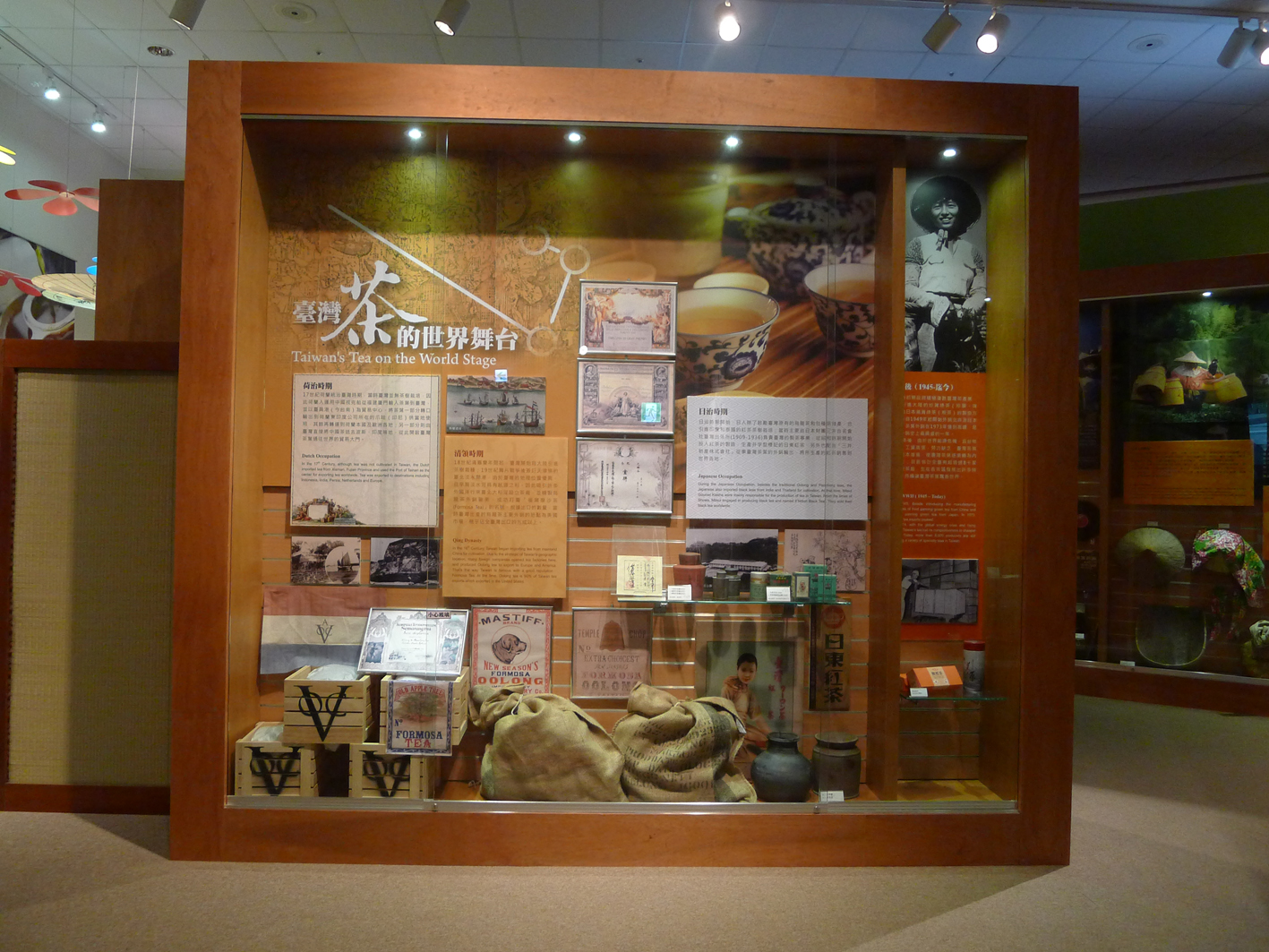
Exhibition period: From Jul. 6, 2013
At: Cultural and Creative Industry Hall, Taiwan Hakka Museum
Reviewing the development of the tea industry in Taiwan, the Hakka people who resided in northern Taiwan lived on s that are favorable for cultivating tea trees; as a result, the Hakka immigrants introduced the techniques of planting and manufacturing tea from their hometown to Taiwan. For a century, the Hakka group not only played a pivotal role in the tea industry in Taiwan, but also witnessed the historic tracks of Hakka’s emigration for reclamation. This exhibition displays more than one hundred precious cultural relics of tea industry to look back at the glorious history of the tea industry in Hakka settlements, as well as specially reconstructs the settings of tea factories, tea shops and tea booths in the early era, allowing the visitors to experience the lives in Hakka settlements as well as the hardships and difficulties for manufacturing tea in the past; the exhibition also combines the tea and ceramic culture together to showcase the distinctive tea culture of Hakka in hundreds of years.
Unit one: The Global Stage of Taiwanese Tea
Taiwan started to import tea from China’s Fujian and Xiamen for intermediary trades under the rule of Netherlands; in the Qing Dynasty, the authority began to introduce the planting of tea trees to Taiwan, as well as successfully exporting tea abroad to the American market utilizing the title of “Formosa Tea”; in the Japanese colonial era, the government encouraged the production in black tea as the main product for exporting overseas; in the Taiwan Restoration period, the exporting of Taiwanese tea reached its peak until the global energy crisis in 1974, and afterwards the appreciation of Taiwan dollars, the rise of wages, lack of labor, and the rise of cost of production occurred. As a result, Taiwanese tea industry gradually changed its major target to the domestic market.
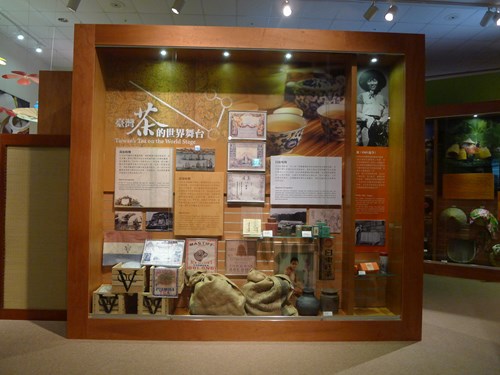
Unit two: The Butterflies in the Tea Plantations
Working under the sun, the female tea pickers not only had to get up at four o’clock in the morning, go to the tea plantations on the mountains, but also needed to bend over all day long for work. It was really an exhausting job! According to statistics, there were up to two hundred thousand female tea pickers working in tea plantations on the mountains in early twentieth century, and most of them were Hakka women. Additionally, the folk songs they sang during work were the most melodious movements in the tea plantations.
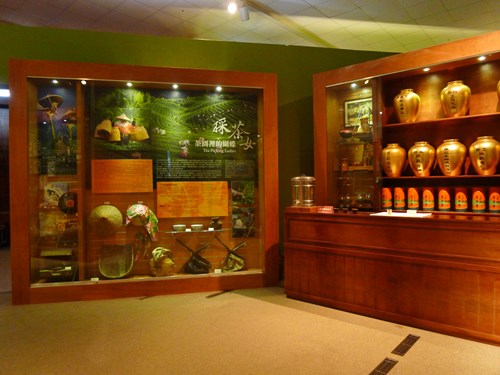
Unit three: Tea Processing
Tea processing is mainly divided to two stages: tea primary processing and tea refining. Furthermore, the tea primary processing differs according to the difference of tea plant variety, which chiefly consisted of sun withering, indoor withering, stirring, pan-firing, rolling, wrapping tea in white cloth in a shape of ball to be rolled and ground by the rolling machine, picking manually to remove the stems and second drying etc.; yet is still required to be roasted and packaged in tea refining process, the whole processing would finally be completed.
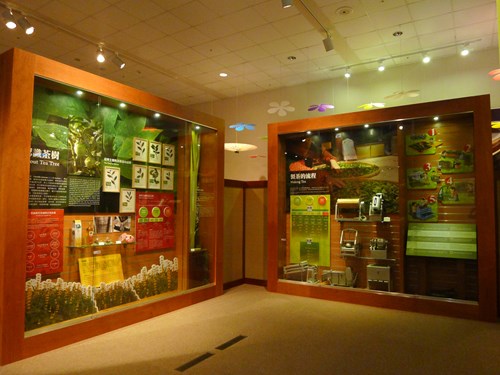
Unit Four: Hakka Tea Culture
The Hakka are always renowned for the characteristics of respecting the nature, worshiping the ancestors, cherishing blessings, showing gratitude and hospitality to guests. As a result, in their daily life, they would worship the gods with tea every morning and night; in the wedding customs, they would express their benedictions with sweet tea which also signifies the value and commitments toward marriage; when friends visit them, the Hakka always show their sincere hospitality through serving their friends with tea; in order to show sympathy for travelers, the Hakka people specially establish the tea stalls for them to drink tea and take a rest for free, fully exhibiting the rich human touch of the Hakka.
